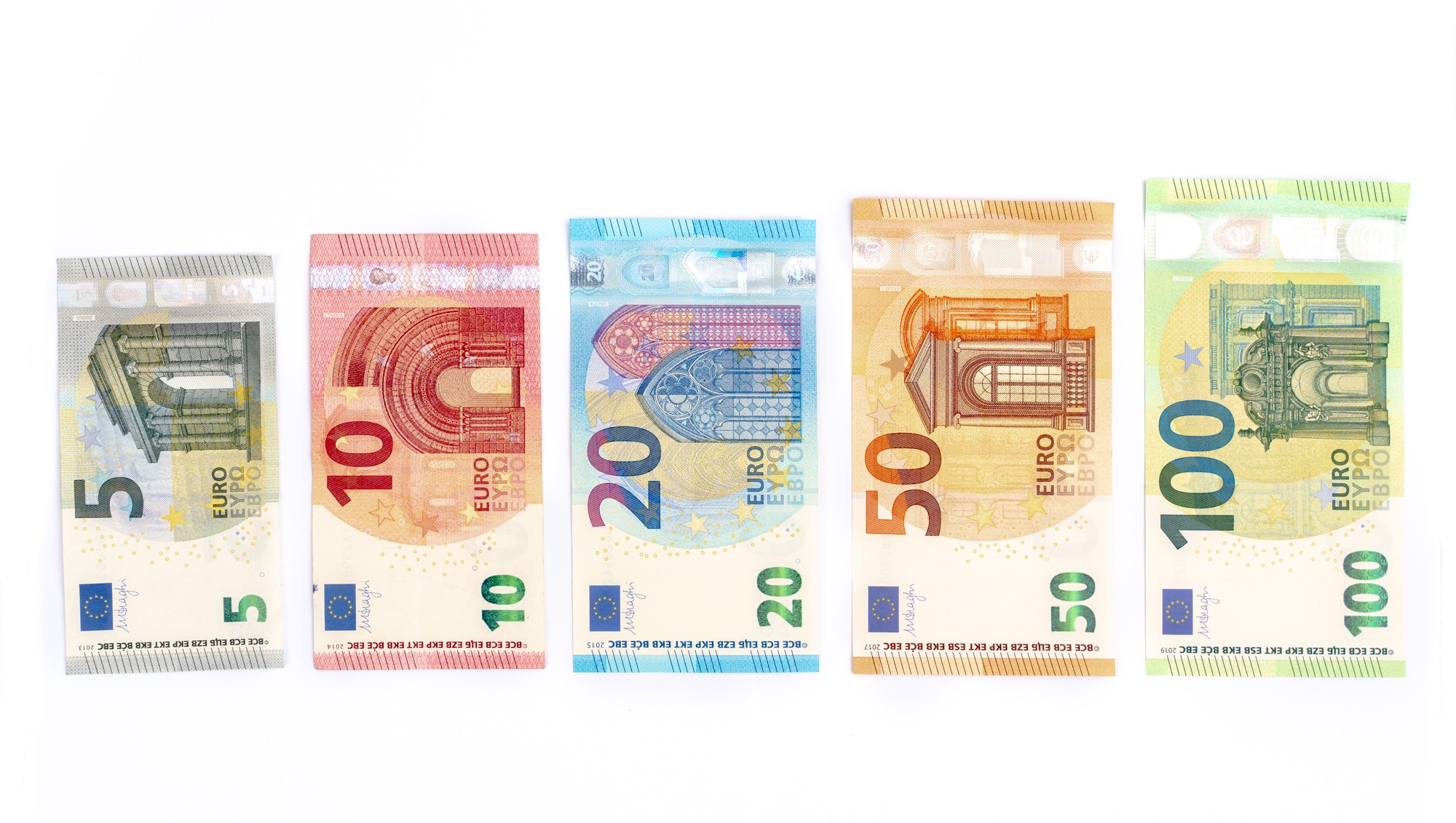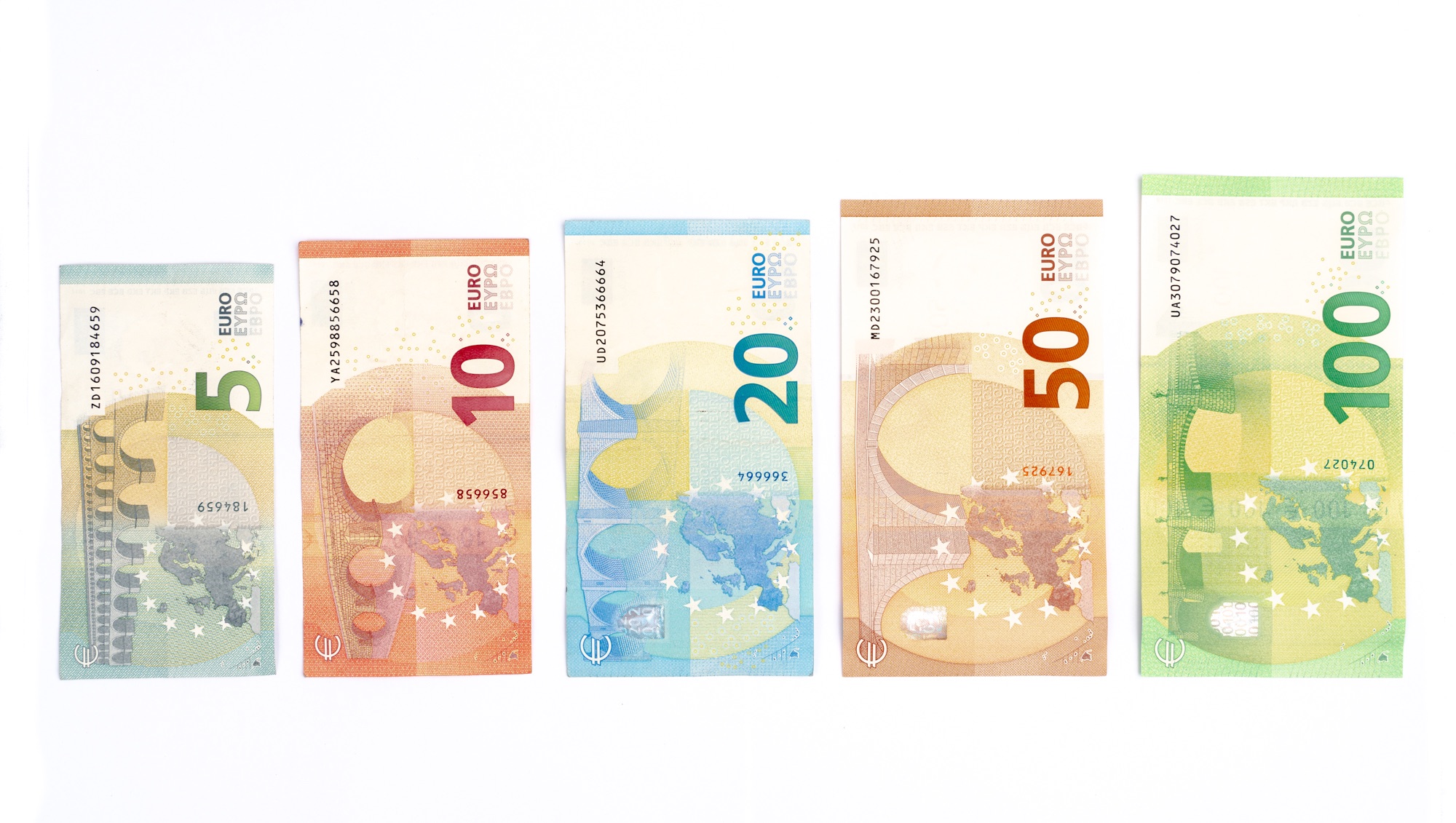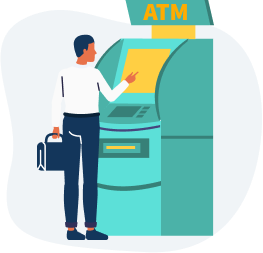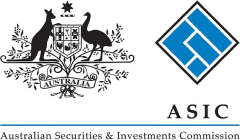Currency in Croatia
The Travel Money Guide to Croatia
Croatia has risen in popularity as a tourist destination due to its stunning long stretches of beach, postcard towns and national parks. But it isn’t a budget destination and to get the most out of your trip, it’s a good idea to learn everything you can about the local currency and payment options before you go.
The currencies they use in Croatia
Today, they use the Euro throughout Croatia although until recently, the country used the Croatian Kuna.
On the 1st of January 2023, Croatia switched from using the Croatian Kuna to the Euro. This means that if you are visiting Croatia, you will need Euros to use at restaurants, hotels and supermarkets.
From January of this year, the only place you can exchange kuna is at the Croatian National Bank. This means that you won't be able to use kuna anywhere in Croatia anymore.
Banknote Denominations
Euro banknotes come in denominations of €5, €10, €20, €50, €100, €200, and €500. The designs are the same throughout the eurozone with different sizes and colours denoting the different bill values.
You’re unlikely to come across a €500 note but it’s a good idea to avoid even the €100 and €200 bills as some merchants are reluctant to accept these higher denominations.


Coin Denominations
Croatian euro coins come in the standard eight denominations: one cent, two cents, five cents, ten cents, 20 cents, 50 cents, €1, and €2.
The ‘common’ side of the coin used across the eurozone features the numerical value of the coin and a map of the European Union.
On the reverse ‘national’ side, all coins bear the same design theme including the Croatian checkerboard in the background.

Using Your Bank Card in Croatia
Most Croatian businesses are well set up to receive card payments. Some of the best travel money cards include debit, credit and prepaid cards. But before you use your bank card willy-nilly, it’s worth reading up on the fees and charges you might incur.
Debit Cards
You’ll probably want a debit card if you plan to withdraw money from an ATM. While you may also be able to pay with a debit card in some businesses in the major destinations, you might discover some hefty fees on your account summary.
Depending on your bank, you could be hit with fees for foreign ATM withdrawals or currency conversions. But some banks are better than others; we recommend checking out Wise, ING and Revolut, all of which have travel-friendly debit cards that waive these charges.


Credit Cards
Credit cards can come with some enticing perks, including added security, loyalty programs, and even free travel insurance.
But are they worth it?
Major local businesses, including hotels, restaurants, airline offices, and department stores, accept credit cards. But you might have to pay a surcharge.
Mastercard and Visa are widely accepted. You may also be able to use your American Express card, though local ATMs won’t accept them.
Just be aware of additional charges you may incur for foreign transactions. These could include:
- International transaction fees
- High exchange rate margins
- ATM fees
- Potential ‘cash advance fees’ if you use an ATM
If you still prefer credit cards over any other payment, consider going with a company that offers cards that waive certain travel fees. Bankwest Platinum and 28 Degrees both have travel-friendly cards.
Prepaid Travel Cards
The biggest advantages of prepaid travel cards are that you can lock in a favourable exchange rate. You also get a handy back-up card.
Just remember that while they are convenient, you could end up paying a long list of hidden fees. Many travel cards still impose:
- Currency conversion fees
- Uncompetitive exchange rates
- International ATM withdrawal fees
- Initial load fees
- Reload fees
- Inactivity fees

How to Buy Euro Before You Go
There’s a certain reassurance that comes with stepping off the plane (or cruise ship) already cashed up with Euro.
Buying Euro before you leave Australian shores isn’t just convenient. It can also save you money. But it all depends on where you get your Euro in Australia. There are three main options:
- Buy EUR online and have it delivered or collect it in-store
- Swap AUD for EUR from a money changer
- Buy your Euro at your the airport
Currency exchange offices at Australian airports are notorious for their poor rates and commissions so we recommend avoiding that option entirely.
You’ll easily find a bureau de change near you; even suburban shopping centres should have at least one. But it’s better to get your money from an inner-city bureau if possible. They have more competition, which is likely to drive their rates down.
If there’s already too much running around to do ahead of your trip, consider ordering Euro online. You can choose to have them delivered or made available for pick-up at a location near you.
Online orders are often the best value too, especially if you go with S Money, which offers the same rates listed on Google and XE.com.
How to Exchange Currency in Croatia
Places like Zagreb, and Split receive great numbers of tourists, so there are facilities to cater to money exchanges. Beyond these major destinations, it’s best to get cash before you venture into remote territory.

ATMs
Many ATMs are called bankomats in Croatia and they are most towns, cities, small islands, supermarkets, hotels and resorts. Privredna Banka (PBZ) and Zagrebacka Banka provide lots of ATMS to provide a secure way to get Croatian kuna overseas. Normally they dispense 100kn and 200kn banknotes.
Depending on your bank, you may have to pay for overseas ATM withdrawals and currency conversions. To reduce the amount you’ll pay in fees, try to withdraw just the right amount of money you’ll need for the duration of your trip.
Don’t forget: Let your bank know you’re travelling! If they detect a foreign transaction but aren’t aware you’re overseas, they could end up freezing your card.
Currency Exchange in Croatia
You won’t have any problem changing money in the the major cities like Dubrovnik, Zagreb or Hvar. There are plenty of money exchangers, most of them are independently owned so they all look different but most of them have either money or changer in the shop signage.
Money changers tend to offer marginally better rates than banks as many banks charge a high flat fees per transaction. Also, banks only exchange currencies on weekdays.


Travellers Cheques
Not worth the bother! Travellers cheques are so outdated, very few banks even accept them any more.
They can’t be used as direct payment, so the only way to use them once you’re in the country is to swap them for currency at a bank or bureau de change office. Even then, very few banks will accept travellers cheques if you don’t have an account with them. And exchange services apply exorbitant fees and rates to them.


